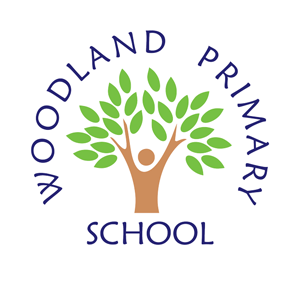Phonics & Reading
Reading as a priority
At Woodland Primary School, reading is a priority. We believe to be successful in life you must be able to read; it is a fundamental life skill. Therefore, we encourage our children to become resilient readers and confident communicators. Reading is prioritised to enable all children to access the curriculum.
Our consistent and rigorous approach to teaching early reading enables our children to master the key skills that research suggests is important early on. To do this, we follow the Read Write Inc. programme; this sets out a sequence of lessons that teaches children to read accurately and fluently with good comprehension. They also learn to form each letter, spell correctly and compose their ideas step-by-step.
How do we teach phonics at Woodland?
· Learn to read and write the 44 sounds and the corresponding letter/letter groups using simple prompts.
· Learn to read words using sound blending (Fred talk) e.g. c-a-t = cat, sh-o-p = shop.
· Learn to write words by saying the sounds and graphemes (Fred fingers).
· Read and write ‘red words’ these are words that have less common spelling patterns.
· Read lively stories featuring words they have learnt to sound out.
· Show that they comprehend the stories by answering ‘Find It’ and ‘Prove It’.
· Answer questions
· Practise every activity orally.
· Take turns talking and listening to each other.
In order to teach children to develop their reading fluency and comprehension skills further, we believe it is vital that children experience high quality modelling from adults in school. They are given support where appropriate and the opportunity for independent practice of skills. As a class the areas of development are identified and focused intervention takes place during the lesson.
Across the academic year, all classes will cover the content domains as set out in the national curriculum. The aim of each session is to tackle questions in detail, with reference to explicit strategies for each area of focus.
The majority of children will access the same text, with support provided by the adults in the room. This text is age-appropriate, but could also be an example of cross-curricular reading (either fiction, non-fiction or poetry).
Read Write Inc videos for parents:
What is Read Write Inc Phonics?
Home reading:
Every child at Woodland Primary School is expected to read five times a week. In EYFS and KS1, each child will be given the storybook that they have read in RWI lessons so that they can practise re-reading it at home. This is done to help them build their confidence and fluency. They will also be given a ‘book bag book’ which will be an exciting text that they will be able to read themselves; this is because they will have learnt all the letters and ‘red words’ already in class but parents or carers can offer some help if the child needs it. Children will also have the opportunity to take home a story book for parents to read to them through story time at home.
In KS2, children take home a book that is appropriate to their year group expectations. The children have the opportunity to choose from a range of home reading books from the home reading corner including:
· Famous authors
· Mystery
· Fantasy
· Comedy
· Real-life
· Non-fiction
· Recommended reads
· Classics

Leadership and Ambition: School leaders are noted for their ambition and effective work in improving the school. Their efforts have resulted in a good quality of education for the pupils.

Quality of Education: Pupils receive strong support in learning to read quickly and achieving well. The curriculum is well-planned and effective, particularly in the early years and mathematics. Teachers and teaching assistants are well-trained and provide clear explanations and encouragement.

Safeguarding: The school has effective safeguarding measures in place. Staff are well-informed and confident in identifying and addressing potential risks to pupils. Pupils are knowledgeable about staying safe, particularly online.

Personal Development: Pupils are encouraged to be independent from an early age and take care in presenting their work. They enjoy participating in various clubs and activities, including sporting competitions and educational visits.

Overall Effectiveness: The school was rated ‘Good’ in all categories, including quality of education, behaviour and attitudes, personal development, leadership and management, and early years provision.

Positive Environment: The school’s environment fosters respect and support among pupils and staff. Pupils are encouraged to develop good manners and social skills, contributing to a positive school culture.

Behaviour and Attitudes: Pupils exhibit respectful relationships with adults and move around the school sensibly. They are confident in seeking help from staff if needed, and bullying is rare. Pupils listen attentively to teachers and engage in class discussions.

Support for SEND: Pupils with special educational needs and/or disabilities (SEND) are quickly identified and well-supported, achieving good outcomes as a result.


